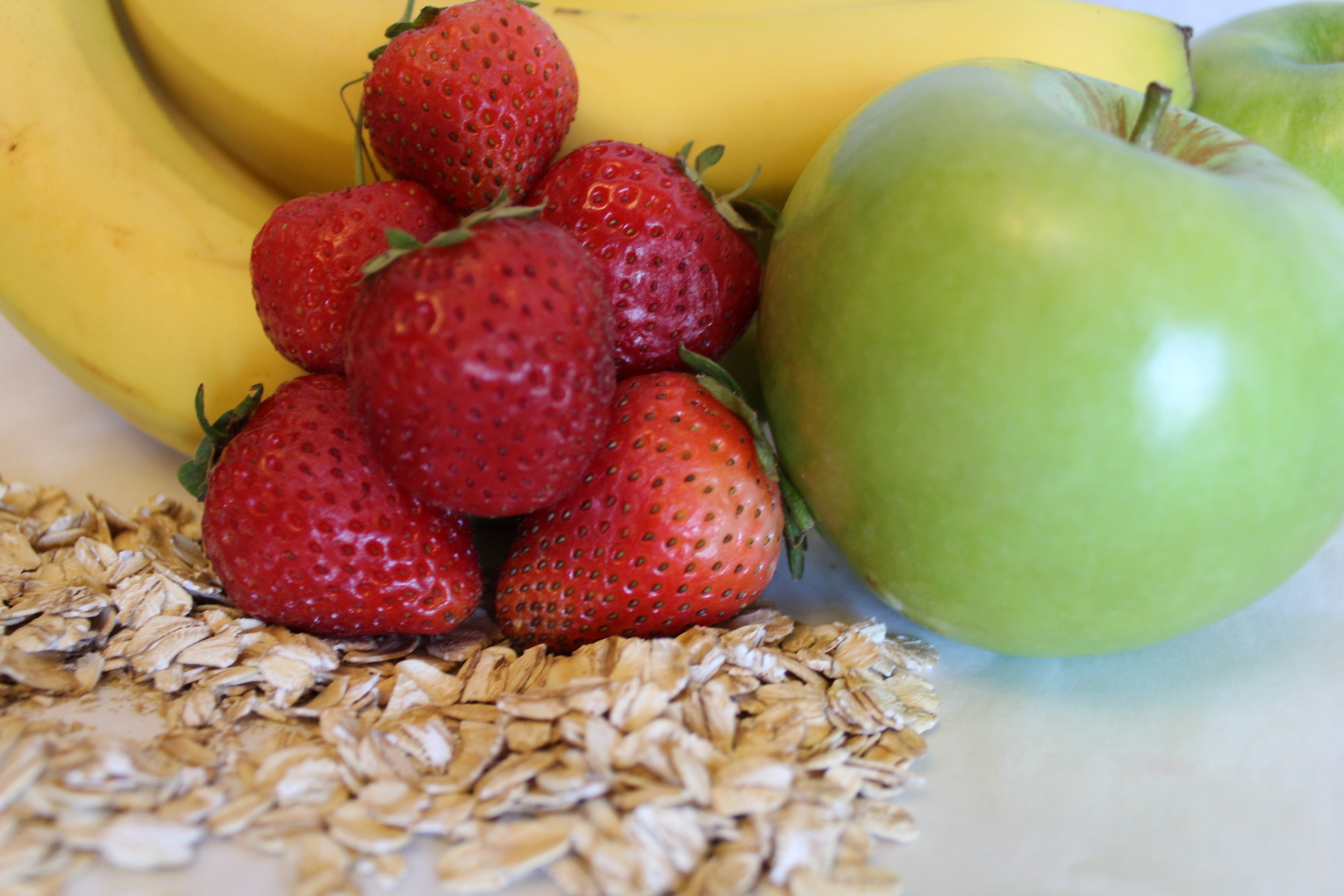Food for Thought
Above: A bounty of healthy foods found on campus. Photo by Liz Duncan.
Michelle Caldera
@mishpunch1208
Can't remember formulas during a math test? How about forgetting all those important historical dates you spent so much time studying? For many college students, even mustering the concentration needed for an hour-and-a-half-long lecture is a struggle too real to hashtag.
Memory and concentration are key factors when it comes to educational performance. These two aspects work optimally if one sticks to simple foods that help work with the body. Along with adequate amounts of sleep and regular exercise, food is an important determinate in allowing our mind to absorb information, and to recall that information in class.
“Goods such as complex carbohydrates like oatmeal, whole grain breads and cereals, fruits and vegetables, cold water fish like salmon and walnuts are all good choices to keep the brain fueled and healthy," says Candice Hines-Tinsley, professor of Nutrition at Chaffey College.
Nutrients from these foods are absorbed through the body to help regulate nutritional health. Broken down and then re-circulated throughout the body, new cells are created as efficient energy to improve cognitive function and memory alertness, as well contributing to other nutritional benefits. Moderate consumption of such foods over a long period of time has its long-term benefits, such as better overall health and lowered risk of attaining chronic diseases in the future.
The mantra of "too much of a good thing may do you harm" does apply to consuming such foods.
“Too much of anything can lead to problems, even with healthy foods," says Kinsley. "The key is moderation. For example, if we eat too much fish, there is a risk of consuming too much mercury, which can lead to toxicity. If we consume too much fat, even from walnuts, that can contribute to gaining weight.”
Food Fact: Refined grains are digested and absorbed by the body very quickly, leading to rapid spikes in blood sugar and subsequent hunger and cravings. Whole grains, on the other hand, are higher in fiber, better for long-term appetite satiation.
Responses to not consuming such foods over a long period of time are determined based on our individual bodies. Common issues include nutritional deficiencies, fatigue, and a higher risk of attaining chronic diseases.
Creativity is key. “Incorporate these foods into the diet (in moderation), still having a variety of foods in the diet to support this concept,” Hines says. “Make fish tacos for taco Tuesday, sprinkle walnuts into your salad, replace white pasta with whole grain pasta, visit local farmers markets to stock up on the freshest fruits and vegetables.”
Through moderate consumption of such foods, our bodies can begin to enhance performance in memory and concentration by consuming and incorporating such healthy foods in our daily diet. Students can then prove their progression by being more attentive and re-collective in the classroom, based on their healthy eating habits.


